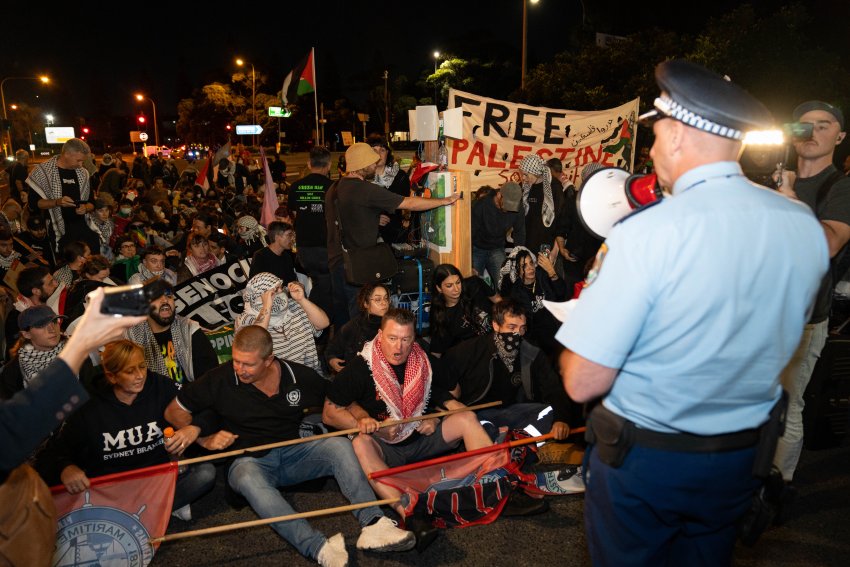
Thirty-seven social and environmental organisations, together with the New South Wales Council for Civil Liberties (NSWCCL), are calling on NSW Labor to repeal the undemocratic protest laws.
A review of the laws by the Department of Roads and the Attorney-General is scheduled after April 1, two years on from their rushed introduction by the then-Coalition gobernment, with Labor support.
Premier Chris Minns has been asked to conduct a public inquiry into the laws to “address the vital issue of protecting the right to protest”.
The NSWCCL said protest is a “fundamental democratic right” that allows us to “express our views, shape our societies and press for social change”.
It said the draconian laws have created a “chilling effect on civil movements and social progress”.
Amendments to section 144G the Roads Act 1993 criminalises anyone causing “serious disruption” to prescribed bridges and tunnels as well as all “main roads”.
The maximum penalty is $22,000, or two years in jail, or both.
An open letter, published on April 2, calls on Labor to commit to making the review publicly accessible. It said the “right to protest cannot and should not be scheduled merely for a ‘departmental’ review”.
So far, Labor has refused.
Lydia Shelly, NSWCCL president, said: “Everyone should have the right to gather and convey political messages in non-violent protest. This right is essential to our democratic system of government.”
Anastasia Radievska, Australian Democracy Network spokesperson, said that the laws which were rushed through in less than 48 hours, are being “used to justify increasingly escalatory policing of peaceful protests”.
They justified the heavy-handed policing and arrests of a peaceful pro-Palestine protest for Palestine in Port Botany.
The Human Rights Law Centre expressed concern that “police issued move-on orders and arrested individuals for alleged failure to comply with these orders when no serious risk to safety was present and no traffic was observed to be obstructed by the protestors”.
Paul Keating, Maritime Union of Australia (MUA) Sydney Branch Secretary said his members are among the 42 arrestees now facing “the possibility of enormous fines, criminal records and prison sentences” for exercising their democratic rights.
Groups supporting the open review of the anti-protest law include: Young Labor Left, Wage Peace, Australian Services Union NSW (ACT Services Branch); the Australasian Meat Industry Employees Union NSW Branch, Socialist Alliance, Redfern Legal Centre, Tzedek Collective, Pride in Protest, the Jewish Council of Australia the United Workers Union, the Nature Conservation Council of NSW and all NSW Greens MPs.